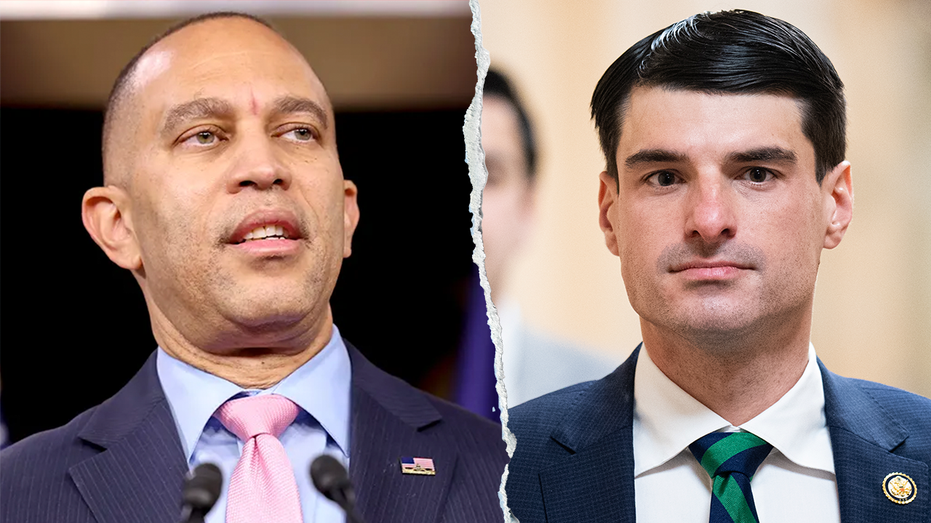Pelosi's Stock Trading Scandal Haunts Democrats as Jeffries Slams GOP Freshman's Alleged 'Theft'
Amid accusations against freshman GOP Rep. Bresnahan for alleged stock trading violations, both parties clash over congressional stock trading ethics.

The ongoing debate over stock trading by members of Congress has erupted into a heated partisan clash, with both major parties accusing each other of "hypocrisy" and corruption. The National Republican Congressional Committee (NRCC) has taken aim at House Minority Leader Hakeem Jeffries for criticizing freshman Republican Rep. Rob Bresnahan's active stock trades, arguing that Democrats themselves have a long history of financial dealings while in office. The NRCC's spokesperson, Mike Marinella, asserted that accusations from Jeffries amount to "political pandering," pointing to decades of stock market activity among high-profile Democrats, including Jeffries’ own predecessor, Nancy Pelosi.
The controversy gained renewed attention after media reports revealed that Rep. Bresnahan continued to trade stocks even after he entered Congress, despite having campaigned on a promise to ban such activity among lawmakers. The Pennsylvania Republican also introduced legislation to address the issue and vowed to place his own assets into a blind trust, yet disclosures show he still engaged in trades. Jeffries quickly seized on the situation, calling Bresnahan’s actions “thievery” and vowing that Democrats would put an end to such practices if they regain the House majority. “This guy is getting richer while everyday Americans struggle to live paycheck to paycheck,” Jeffries said, underscoring the broader public frustration with perceived conflicts of interest in Washington.
Yet, accusations of hypocrisy have not been limited to one party. Republicans have pointed out numerous instances of Democratic lawmakers engaging in similar behavior. Nancy Pelosi, one of the most scrutinized figures in this debate, has faced criticism for her husband’s multi-million dollar trades, including the timely sale of Visa shares ahead of federal action against the company. Multiple Democrats, such as Reps. Vicente Gonzalez and Jared Moskowitz, have also disclosed substantial trades, some coinciding with key legislative or market events. Rep. Julie Johnson reportedly moved quickly to sell dozens of stocks just hours before significant tariff announcements, adding fuel to the criticism that congressional stock trading is a bipartisan problem.
The issue has gained traction with legislators from both sides. Republican Senator Josh Hawley has reintroduced proposals to bar members of Congress and their spouses from trading individual stocks, invoking public anger over what many see as insider advantage. Democrats, for their part, argue that Republican leaders have failed to advance meaningful reform, with Jeffries’ spokesperson Justin Chermol stating that “House Democrats will not be lectured by a Republican Party that has openly embraced corruption in the Trump administration, the Supreme Court, and the Congress.” Chermol further challenged Republicans to bring a stock trading ban to the floor for a vote, saying, "They have refused to do it."
As the calls for ethics reform intensify, the back-and-forth accusations highlight the deep mistrust of both parties by the public, who continue to demand greater transparency and accountability from their elected officials. Despite bipartisan support for restricting or banning congressional stock trades, legislative progress remains elusive—raising questions about whether meaningful change is possible in a sharply divided Congress.




